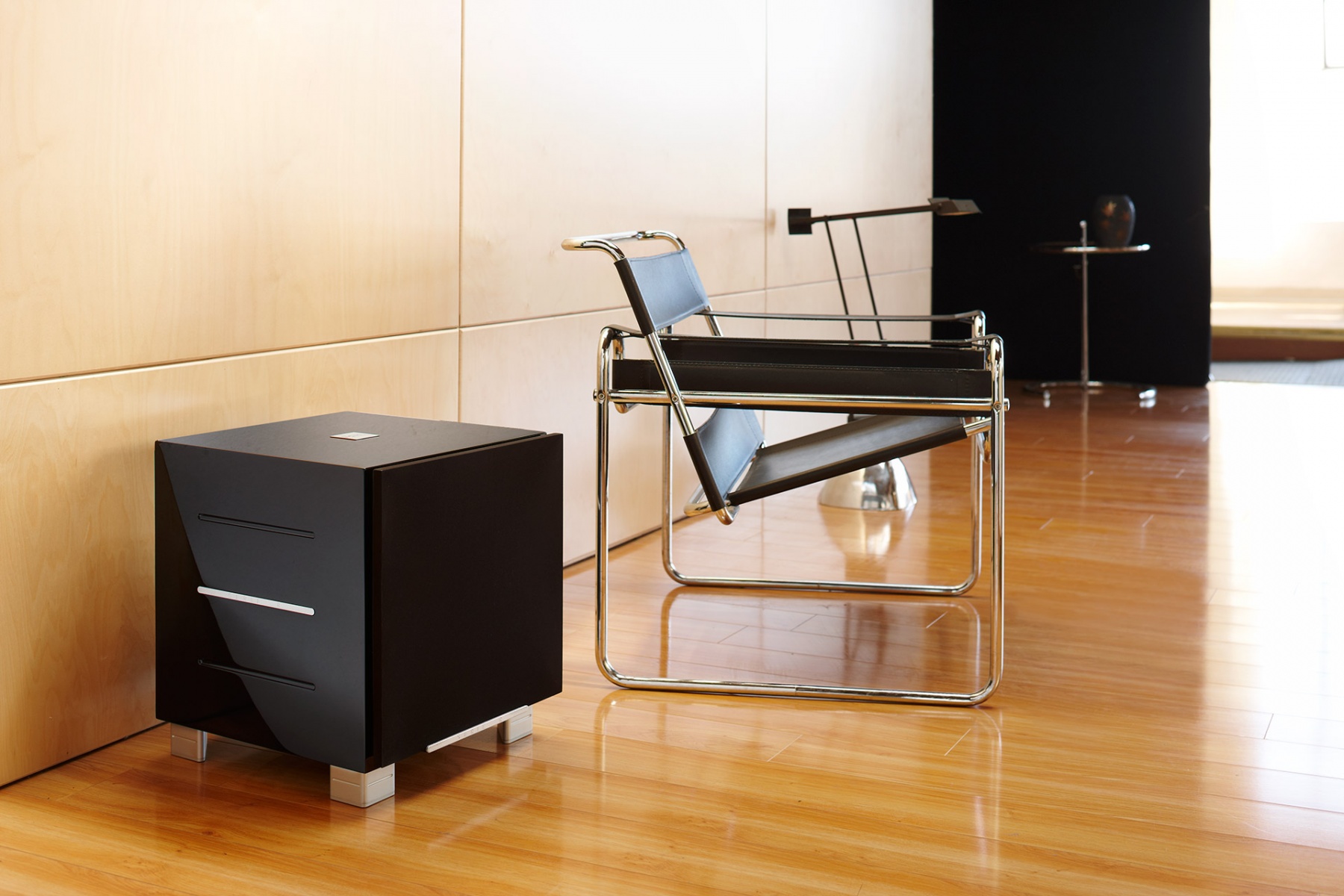THE MUSICAL NECESSITY OF AN ACTIVE SUB-BASS SYSTEM.
Is deep bass necessary or desirable? Yes, in our opinion it is not only desirable, it is a critical part of the audible spectrum. “High Fidelity” products are designed to reproduce the original sound of an instrument or soundtrack as accurately as possible by faithfully preserving the character of the “live” sound down to the last nuance and detail. When reproducing the sound of large bass instruments, such as organ pipes or the synthesized low frequencies present in film mixes, the sonic benefit of adding a sub-bass system is immediately obvious. Higher frequencies, you may think, are unaffected, because they contain no bass. In reality every note comprises a “fundamental” frequency and “harmonics” which embrace a much wider frequency spectrum than the fundamental, and combine to distinguish a note played on say a piano, from the same note played on a violin. All musical performances will produce very low frequencies in addition to those expected. A REL will ensure that your system is wide band width, ensuring that it more closely resembles the live performance. This principle is valid with all sound reproduction media. In all cases, deep bass is both desirable and necessary. Another example; walk into a large building, such as a cathedral. Immediately you sense you are in a large building simply by the way it “sounds” – it has a special ambience. Our ability to perceive this type of ambience comes in part from a subliminal awareness of the very long wavelengths (low frequencies) that are reflected all around us. These aural clues will be missing in a music or movie system of limited low frequency bandwidth.
“The REL shores up the organ entries in recordings of Mahler Second (Resurrection) or Eighth symphonies, and allows them to breath in a way you might not have expected to hear outside the concert hall. But the benefits reach much further than that. The REL equally contributes to space around and substance to the sound of solo piano.” – Alvin Gold, Gramophone

